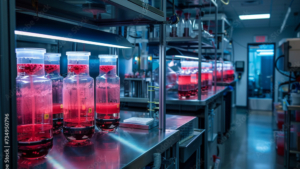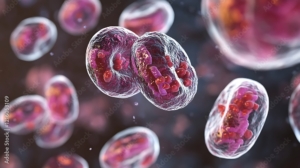
Enifer files for EFSA authorisation of mycoprotein
As the first Nordic company seeking Novel Food approval for a mycoprotein ingredient, Finnish Enifer has filed a authorisation application for it brand PEKILO to the EU food watchdog EFSA.
In a new €33 million production facility, which is due to be commissioned in 2026, the Espoo-based company Enifer could produce up to 3,000 tonnes of the mycoprotein annually from food industry side streams. However, although EFSA recently included cultured proteins in its guidelines for novel foods, it still takes an average of 36 months for an EU authorisation for novel foods to be granted. Lobbyists for cultured foods told European Biotechnology that this is due to a non-transparent and globally unique authorisation procedure, where each individual Member State can veto product approval even if the product is proven to be safe or beneficial for human consumption. As a result, although the EU Commission officially prohibits national bans on cultivated foods, e.g. in Italy or Hungary, it does not intervene at committee level against such irrational trade interventions.
Enifer’s mycoprotein, which will be sold as dry powder to food producers, is a nutrient-rich drop-in ingredient produced through biomass fermentation of Paecilomyces variotii KCL-24. The 2020 VTT spin out company will initially focus on supply of pet food (Purina) and aquaculture (Skretting) companies. However, as market applications in Singapore and the US are in their plannings, where approval times for novel food products for human consumption are significantly shorter [< 12 months] than in Europe, meat and dairy alternatives marketed by Enifer's partner Valio will follow on rapidly.
Originally developed in Finland in the 1970s, Einfer’s licenced fermentation process was designed to upcycle byproducts from the forest industry into animal feed ingredients. It has been successfully used in feed for over 15 years, proving to be an excellent source of protein for livestock, particularly pigs and poultry. In the late 1970s and throughout the 1980s, The biomass fermentation was also studied and shown to have potential for human consumption. Allergenicity tests and sensory evaluations were conducted, and a 1984 study at MIT confirmed the process’ suitability for human nutrition.
However, in the 1990s, product development was cut short by technical advancements in the forest industry, which meant suitable side streams were no longer available. Enifer has revived and refined this brewing-like technology, adapting it to utilise new raw material streams from the food and agricultural sectors such as molasses or molasses lactose permeate while advancing the development of PEKILO as a food ingredient for human consumption.
“Our team has worked hard to compile the data needed to demonstrate PEKILO‘s safety for human consumption, and we’re looking forward to starting the approval process with EFSA,” says Elisa Arte, Enifer’s Ingredient Development Manager.
In the EU, any food that has not been consumed to a significant degree before May 1997 is considered a Novel Food. Some food companies such as Berlin-based Formo Bio GmbH circumvent this regulatory roadblock by using traditional strains such as the Koji fungus, which has been used for centuries in soy sauce production – and at the same time work on precision fermentation processes making the fungal protein avaiable by cultivating of fast-growing bacteria secreting the protein into the culture medium. Enifer and other foodtech start-ups, however, are entering unchartered territory by applying for Novel Food authorisation.
With the application submitted, a thorough risk assessment process will begin.



 adobe stock photo - JR-50
adobe stock photo - JR-50 Romi - adobe stock.com
Romi - adobe stock.com